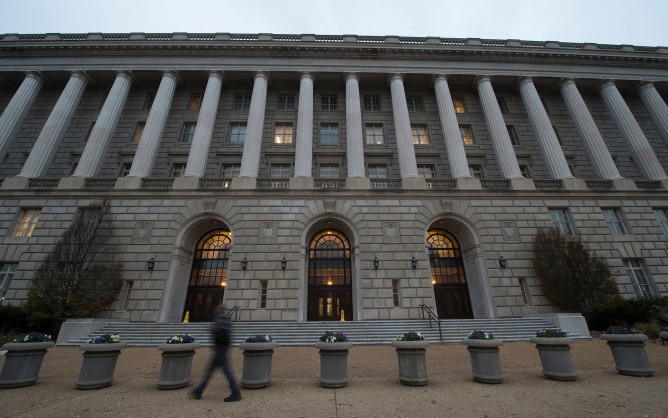IRS Relaxes Rules For New ABLE Accounts

In response to concerns from states, the Internal Revenue Service has signaled that final regulations for new ABLE accounts will include fewer reporting requirements than were initially proposed. (Molly Riley/McClatchyDC/TNS)
The Internal Revenue Service is easing up on rules for new accounts that will allow people with disabilities to save money without jeopardizing their government benefits.
Earlier this year, the IRS laid out plans for how accounts established under the Achieving a Better Life Experience, or ABLE, Act would operate. But the agency received significant pushback from disability advocates and state officials alike who said the proposed federal requirements would be overly burdensome.
Now, the IRS is backing off. In a notice, the agency said it plans to issue final regulations with less stringent reporting requirements.
Advertisement - Continue Reading Below
Specifically, individuals opening ABLE accounts will not need to submit medical documentation, but will have to certify under penalty of perjury that they have a qualifying diagnosis, the IRS guidance said.
What’s more, the agency indicated that ABLE programs will not be required to request taxpayer identification numbers from contributors to ABLE accounts except in limited circumstances and program administrators will not have to categorize what money in the accounts is used for.
“We are very pleased with the interim guidance issued by the IRS, which will make it easier for state administrators to establish and administer ABLE programs in an expedient and efficient manner,” said Heather Sachs, vice president of advocacy and public policy at the National Down Syndrome Society.
Despite federal passage of the ABLE Act last year, each state must establish regulations of their own in order to make the accounts available.
So far, 34 states have approved such legislation, according to the National Down Syndrome Society. However, these states are still working out the details for administering their programs, a process contingent on the IRS rules.
Nebraska State Treasurer Don Stenberg, who was critical of the IRS’ initial proposal, said the agency’s updated approach is welcome and will allow his state to make accounts available as planned next summer.
“In particular, I am very pleased that the IRS will no longer require states to obtain information about expenditures by plan participants and that states will no longer be required to seek and receive medical information about ABLE plan participants,” Stenberg said. “Had those requirements remained in place, the cost of the ABLE program would have increased substantially.”
ABLE accounts are expected to start becoming available to consumers next year, but the exact timetable will vary by state.
With the new accounts, people with disabilities will be able to accrue up to $100,000 without losing access to Social Security and other government benefits. Medicaid coverage will remain intact no matter how much money is saved in an individual’s ABLE account.
Modeled after 529 college savings plans, funds in the accounts can be used to pay for education, health care, transportation, housing and other expenses. Interest earned on savings in the accounts will be tax-free.
Individuals with disabilities that originated before age 26 will be eligible for the new accounts.
Read more stories like this one. Sign up for Disability Scoop's free email newsletter to get the latest developmental disability news sent straight to your inbox.


